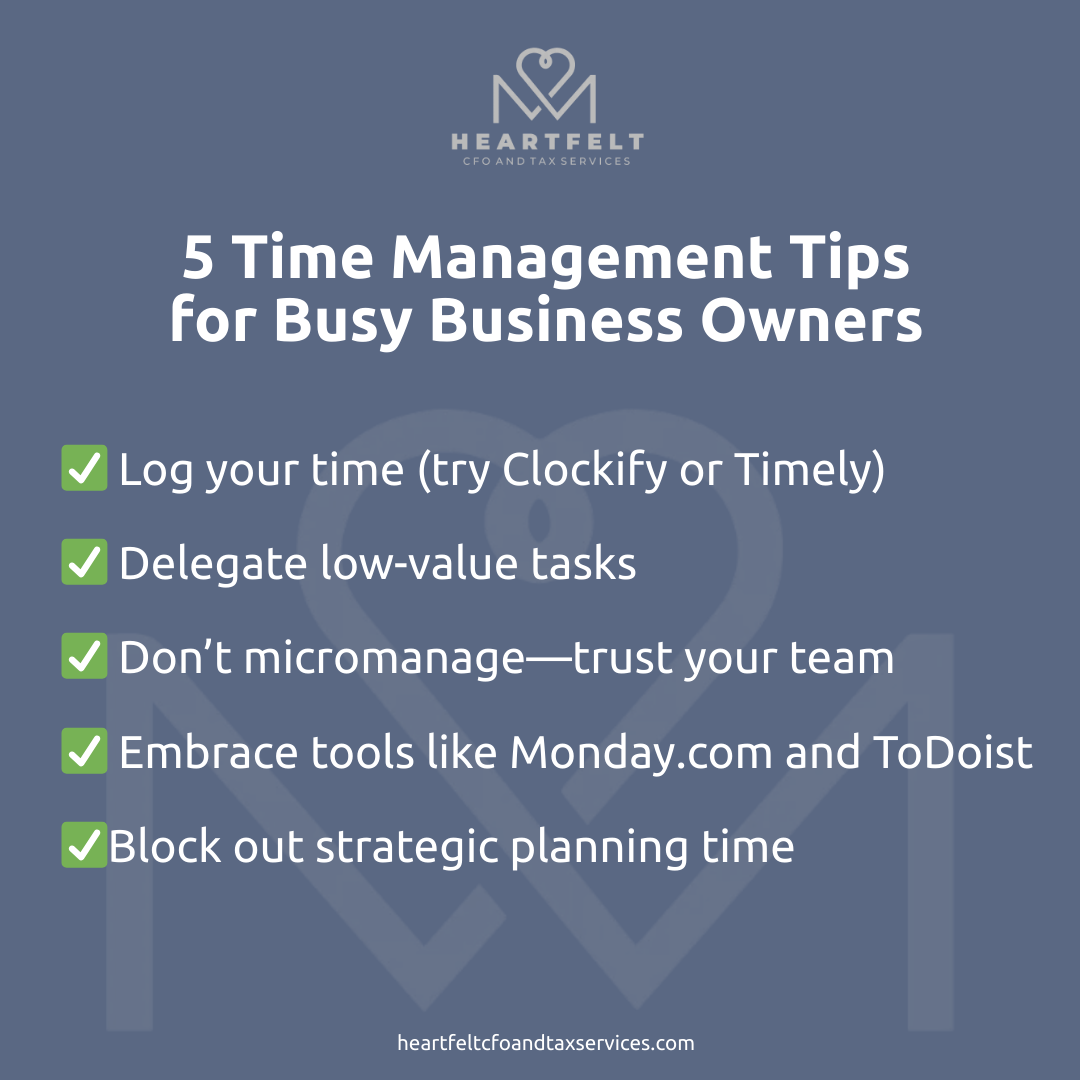Let’s be honest—getting a handle on time management can feel like trying to wrestle fog. Last week, we touched on the procrastination habits that trip up so many entrepreneurs and business owners. (No shame—it’s more common than you think.)
But what happens when you do start gaining traction and having productive days? How do you make the most of those hours?
This week, we’re focusing on how to optimize your time—not just stay busy. Because working hard is great, but working smart is where the real magic happens.
1. Log Your Time Like a CFO Would
When I first started logging my time, it was eye-opening. Seeing exactly where your hours go gives you two gifts: awareness and control.
Time tracking tools like Clockify or Timely can help you:
-
Spot productivity highs and lows throughout the day
-
Identify time-sucking tasks that aren’t worth your attention
-
Make better decisions about what to prioritize (and when)
2. Know When to Delegate
If your time log is full of low-value tasks (think: scheduling, invoicing, manual bookkeeping), it’s a signal. You don’t need to do everything—nor should you.
Outsourcing things like bookkeeping and accounting services, CRM tasks, or HR processes frees you up to focus on revenue-driving activities.
And yes, that includes handing off your financials to a fractional CFO or bookkeeping consultant you trust (hint: we know someone).
3. Stop Micromanaging (Yes, Really)
Once you’ve delegated, your next job is to step back.
Micromanaging kills both your productivity and your team’s morale. If you’ve hired capable people and given them the tools they need—trust them to deliver.
Train well, communicate clearly, then let go. Your business (and your brain) will thank you.
4. Use Tech Tools That Work for You
There are countless apps designed to help you work more efficiently, and while not every tool will be right for your workflow, experimenting with a few can be a game-changer.
Here are a few we love:
-
Clockify – time tracking
-
Timely – automatic time logs
-
ToDoist – task management
-
Focus – distraction blocker
-
Monday.com – project management
Choose the ones that match your working style and stick with them long enough to see the impact.
5. Block Out Strategic Planning Time
You must protect time to work on your business—not just in it.
This means blocking off regular windows for strategic planning: reviewing finances, adjusting offers, setting priorities, or working on big-picture goals. Put it on your calendar like a client meeting, and treat it with the same importance.
Because if you don’t make time for planning, your business ends up running you—not the other way around.
Need Help Prioritizing? Let’s Talk.
You don’t have to do this alone—and you don’t have to guess at your next steps.
👉 Book a free, judgment-free discovery call with Margo to get clarity on where your time (and money) are really going.
👉 Check out our Proactive Package for monthly bookkeeping and tax strategy tailored to small and mid-sized businesses.
👉 Browse our online courses and financial tools to get practical, no-fluff support on your own time.
Because managing your finances—and your schedule—shouldn’t be overwhelming. And with the right support, it won’t be.





